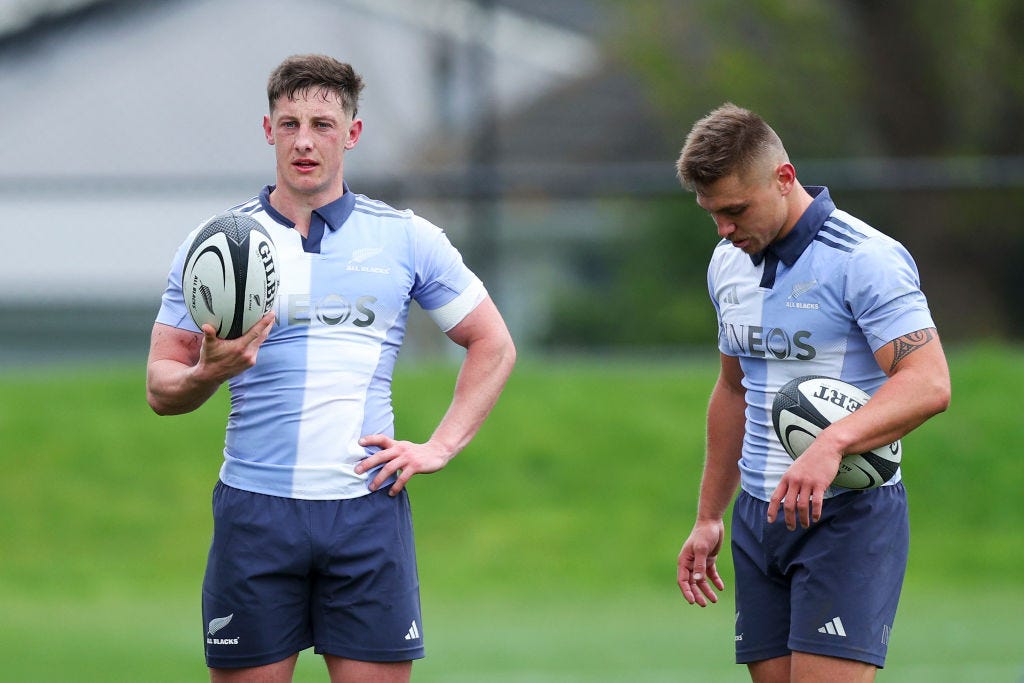Natural selection theory
NZ's two highest profile teams picked squads for big tours, but is anybody happy? PLUS: More book punishment in video form, and The Bounce heads to Southeast Asia.
New Zealand’s highest-profile sports teams are in the grip of a philosophical debate.
Do you pick teams with distant targets in mind, or do you pick to win now?
Our cricket and rugby teams are wrestling with this conundrum. Rugby is unashamedly opting for win-now, while cricket seems to be opting for a foot in both camps. To mangle metaphors, neither of those programmes have been able to convince the public they’re on a well-lit path.
The angst about Scott Robertson’s All Black touring team seems a tad misplaced. His job, as he would have been left in no doubt after a shaky first winter, is to win test matches. Every test match.
The Herald’s long-time columnist Paul Lewis asks why Robertson hasn’t looked more to the future, although I would gently counter by saying the answer is contained within the headline.
Yes, the All Blacks XV appeals as the perfect place to adopt a youth policy, though Lewis makes some good points.
At least [Oliver] Haig has been chosen with the future in mind – unlike Scott Robertson’s present All Blacks squad. The only way young blokes have made the top team is through injury as the coach keeps opting for experience over blooding new players; a first year which seems all about survival; who cares about the 2027 World Cup?
It’s a shame because it is blunting Robertson’s razor – which was supposed to take a cutting edge to the status quo, carving out a new team and a new era. That’s what New Zealand Rugby (NZR) and we in the media expected – and so did hundreds of thousands of fans.
It’s becoming a PR problem now. Should there be two defeats in the three tests against England, Ireland and France (a perfectly possible scenario), Robertson’s record in his first year will look a bit, well, sad. At present many rugby fans are viewing him as more conservative than Ian Foster.
Robertson, I suspect, has realised test rugby is a bit harder than it looks and has fallen back on familiar faces though sheer necessity. What nods to the future there have been seem to be based on extraordinary physical potential (Pasilio Tosi), or a weird Crusader-y vibe (George Bell and Chay Fihaki!).
Meanwhile, Lewis’ stablemate Gregor Paul says Robertson simply didn’t have any goodwill banked to allow any experimentation on such a tough tour.
But really, what stopped any thoughts of unexpected call-ups was the knowledge of how easily the All Blacks could return from Japan and Europe with just two and not five victories.
The 78% win ratio Robertson covets will be 71% if the All Blacks drop just one game on tour; it will be 64% if they drop two, and it will be 57% if they lose three.
These are returns that when they have been produced — albeit rarely and never to the lower end of the scale which Robertson is facing1 — by previous All Blacks coaches, have led to public vehemence, media opprobrium and employer angst.
In 2009, the All Blacks finished with 10 wins from 14 and it was treated as a catastrophe.
In 2022, the All Blacks finished with nine wins and a draw from 14 tests, and two assistant coaches lost their jobs while the head coach only just clung on to his.
And this is all the explanation anyone needs in analysing Robertson’s squad: he believes wholeheartedly in the value of experience and its ability to win tight games, hence he’s loaded his team with it.
Gary Stead has a tougher task, trying to mange multiple formats within multiple contexts, all while the Golden Generation slips into the rearview. For example, do you pick a win-now squad for a tour to India when the chances of actually winning now are only marginally better than the HMNZS Manawanui winning the next America’s Cup? It’s a difficult job, but surely not as difficult as he’s making it look (see bottom section).
The Bounce is proud to have K3 Legal on board as a partner for 2024. Click on the link to learn more about their legal services.
Keep reading with a 7-day free trial
Subscribe to The Bounce to keep reading this post and get 7 days of free access to the full post archives.





